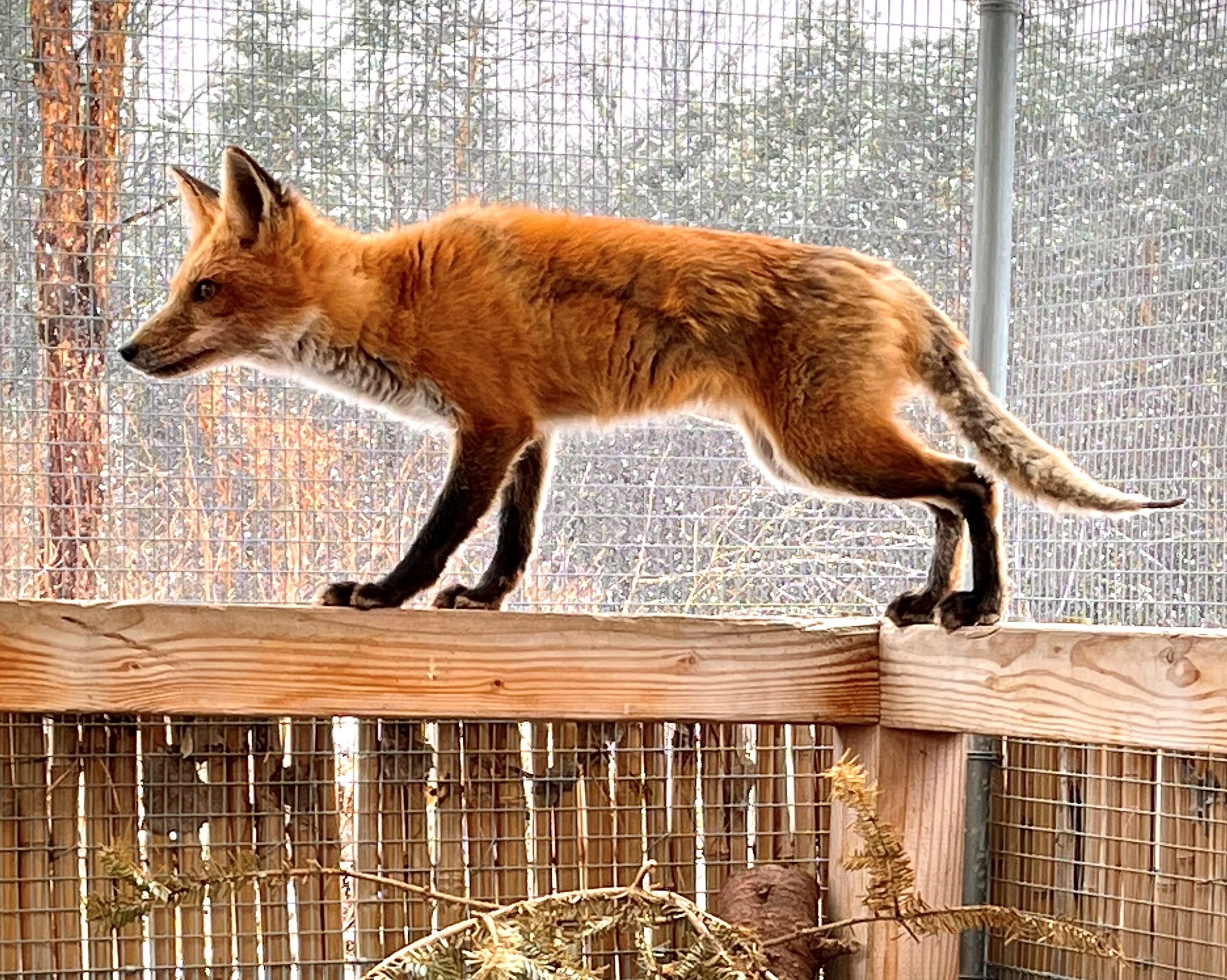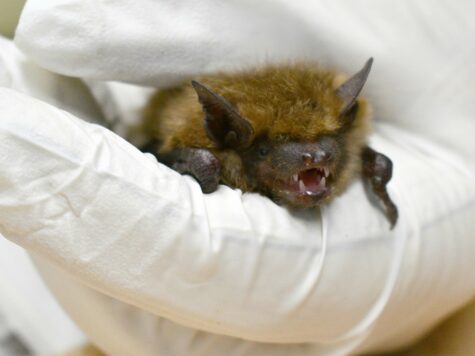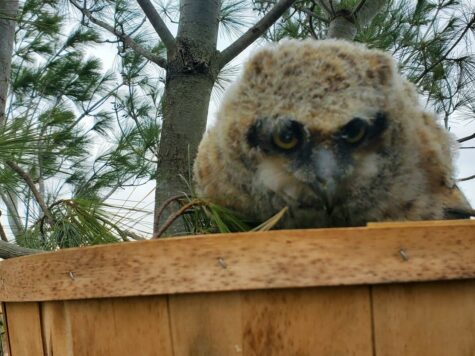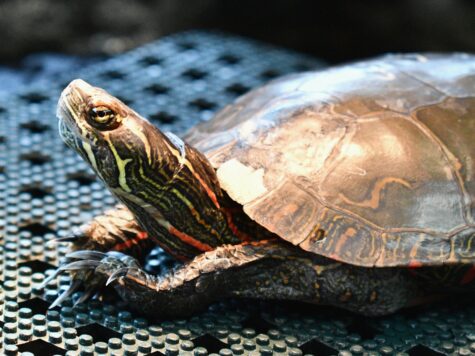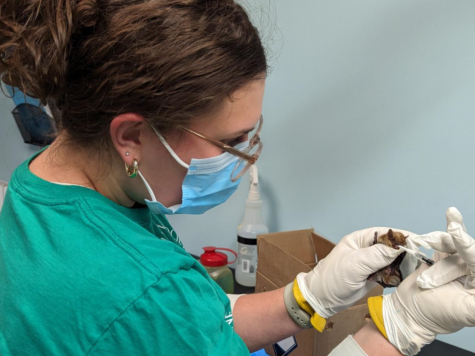DCHS's Wildlife Center admitted 10 individual red foxes for rehabilitation this year between January 1st and April 21st. This includes our adult female red fox that was recently highlighted at DCHS's Toto’s Gala in March.
Red fox #22-0047 was admitted in late January after it was seen with evidence of sarcoptic mange and was struggling to survive in the cold winter temperatures. She had been spotted in poor condition for months already. Despite many calls from concerned residents, she was well enough to evade capture by Animal Services over the summer and fall months. However, as winter came, concerns for the fox's health increased. Mange becomes more serious in winter because the infection prevents its host from growing a thicker fur coat, which the fox needed to stay warm. So a Waunakee resident set a live trap on their property, and the fox was caught and finally rescued.
Mange is caused by parasitic mites that create extreme skin irritation, leading to a buildup of crusts on the skin and loss of fur. The skin around an animal’s eyes can also become crusted over, making it difficult for the animal to see. While the mite itself isn’t deadly, it can cause secondary issues, including starvation, and open up pathways for other infections, all of which can be fatal.
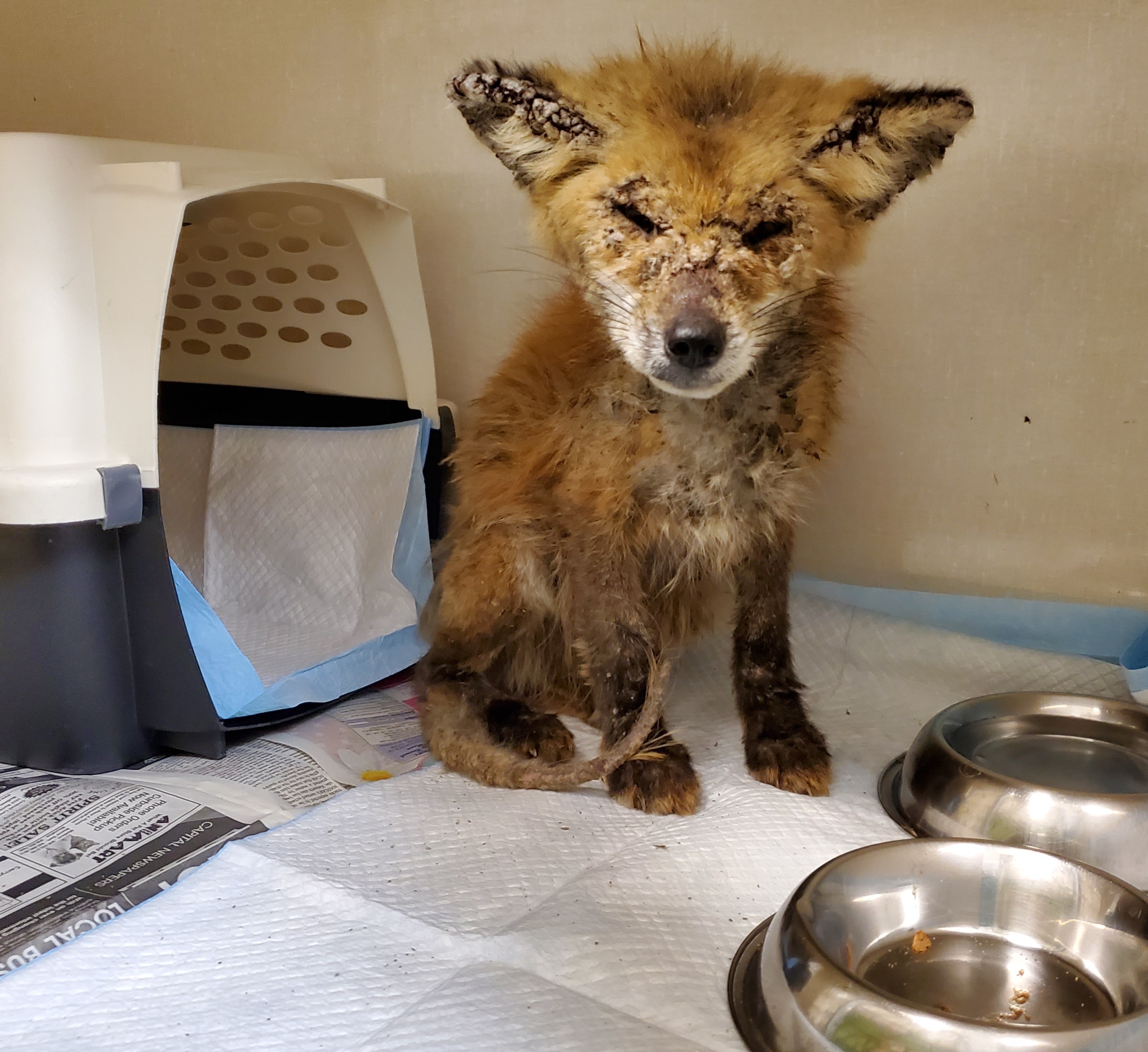
When this fox arrived at the Wildlife Center, she was very thin and had open sores on her hips, which is typical in severe mange cases. Wildlife Center staff provided her with medication to treat her mange, easily digestible food to help bring her back to a healthy weight, and a sheltered space to heal. That way, she was safe from the cold winter weather while her fur grew back.
Several months later, the fox’s skin has improved, her fur coat has grown, and she has thrived in an outdoor enclosure. Staff anticipate it won’t be long until she can be returned to her home territory in Waunakee! Hopefully when she does, any mite activity that had been in her den will have died off and her medication will provide her with three more months of protection in case she does come into contact with mange mites again.
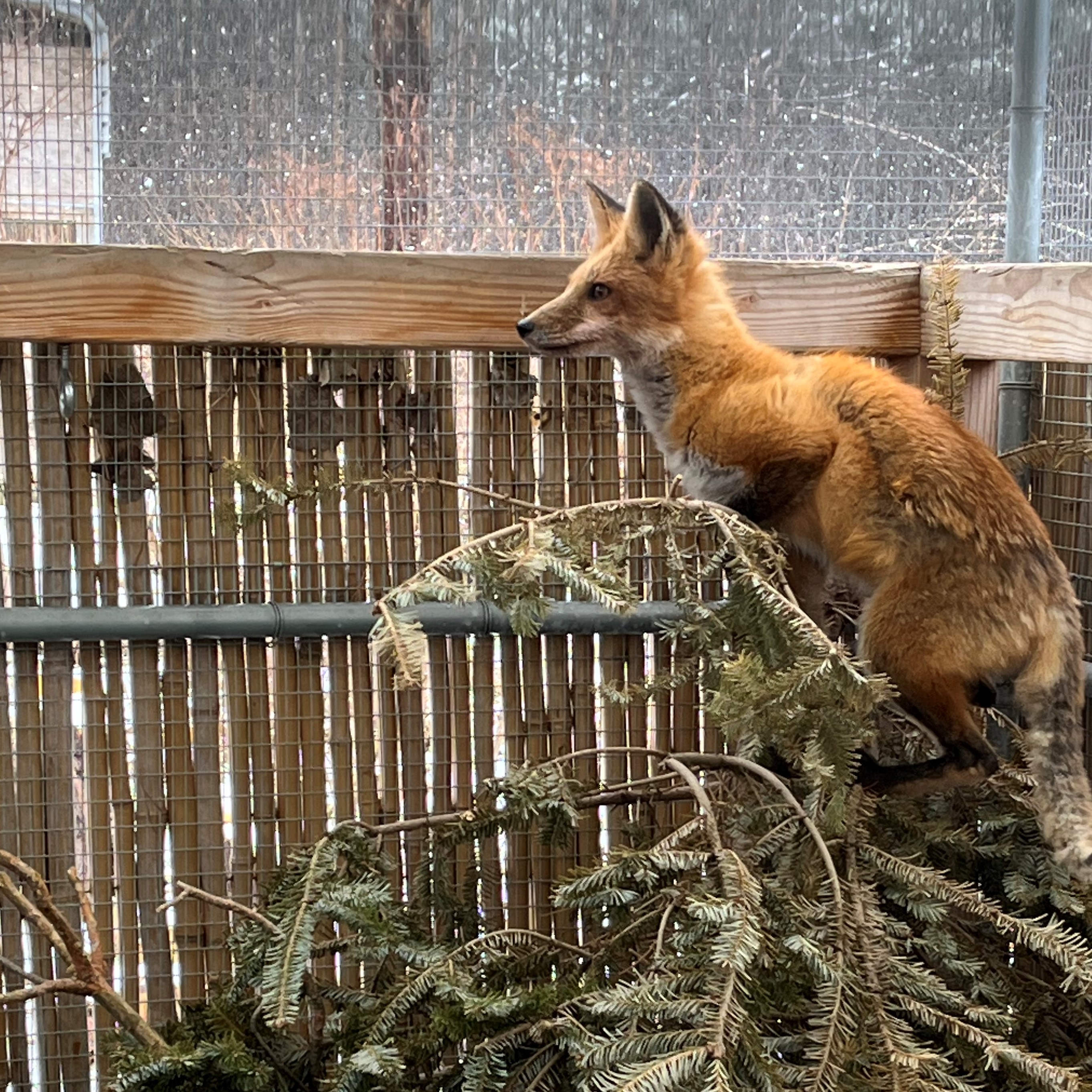
And what about the nine other foxes that have been admitted?
They were all kits born in the spring and separated from their parents somehow. While rehabilitators love working with with fox kits, they do best in social groups where they can play and learn from each other, so it's best to transfer kits to centers where they can socialize with many other fox kits. The kits admitted to DCHS’s Wildlife Center were evaluated medically, cleared for transfer, and then sent to other specialists in Wisconsin who are particularly adept at rehabilitating foxes of such a young age.
We appreciate having such a strong network of Wisconsin rehabilitators, as it helps facilities like ours transfer patients to the locations that can provide them the best care possible.
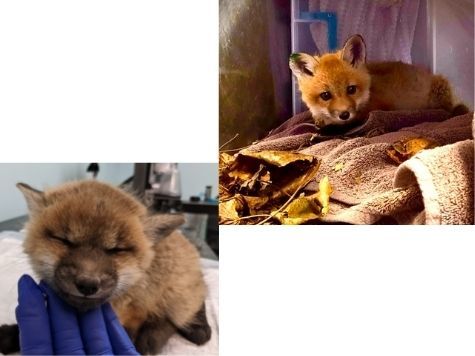
Fox Admission Trends By Year
Is this trend normal for DCHS's Wildlife Center? Ten red foxes in the first four months of the year seems like a large number. Take a look at our annual admission trends over the last eight years:
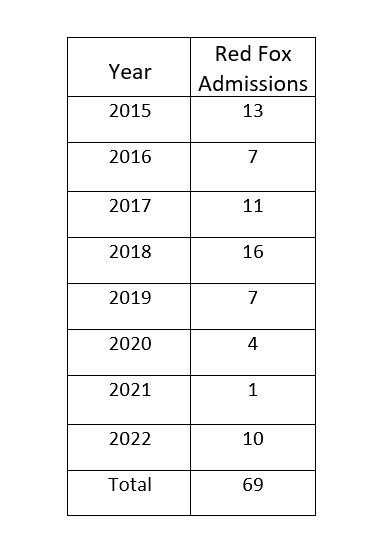
Jackie Sandberg is the Wildlife Program Manager at DCHS's Wildlife Center.
